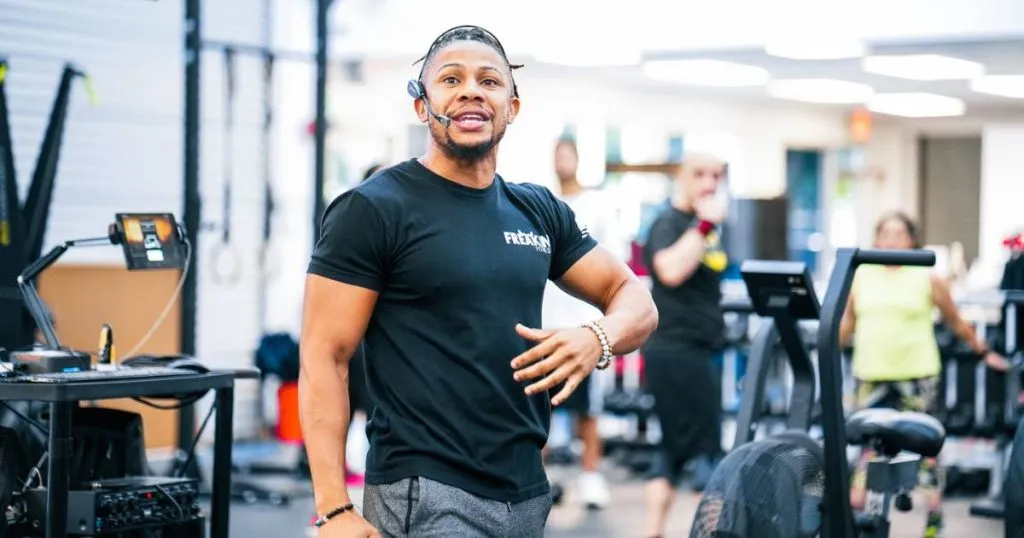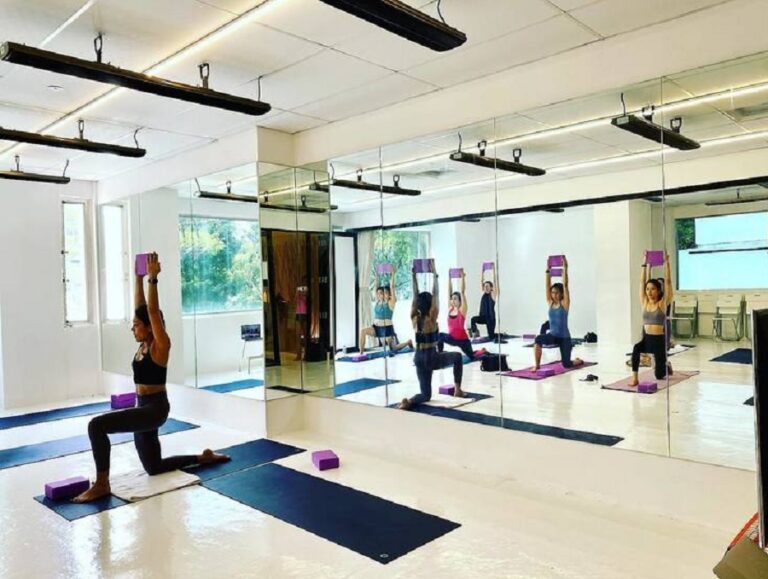In today’s fast-paced society, fitness isn’t just a luxury—it’s a necessity. But while many Singaporeans have the motivation to begin their fitness journey, staying consistent is a challenge. This is where the support of a personal gym trainer Singapore truly shines—not just for physical progress, but for mental breakthroughs too.
The psychology behind why someone hires a personal gym trainer in Singapore goes beyond the desire to lose weight or build muscle. It’s deeply rooted in behavioural reinforcement, accountability, emotional well-being, and the drive to adopt long-term, sustainable habits. Let’s delve into the hidden psychological triggers that make personal training a transformative experience.
Building Accountability and Discipline
One of the biggest hurdles in self-guided fitness is inconsistency. When there’s no one to answer to, skipping sessions becomes tempting. A personal gym trainer provides a built-in accountability system. It’s not just about showing up; it’s about being present, mindful, and ready to push beyond limits.
- Appointment-based structure: Booking sessions in advance with a trainer creates a psychological obligation. You’re less likely to skip a workout when someone else is waiting for you.
- Reinforcement loops: Trainers often provide verbal encouragement and visible tracking of progress, which reinforces discipline.
- Behavioural anchoring: Consistent training at set times helps build routine, eventually turning fitness into a lifestyle habit.
Emotional Investment and Motivation Boost
Training with a personal coach isn’t only about reps and sets—it’s about developing a supportive, motivating relationship. In Singapore’s high-pressure work culture, this emotional bond can act as a stress reliever and a major morale booster.
- Positive reinforcement uplifts self-esteem and creates a feedback loop that keeps you coming back.
- Shared goals: Your trainer becomes a teammate, sharing your goals and celebrating every small win with you.
- Stress coping: Physical training under the guidance of a personal gym trainer provides a healthy outlet to manage emotional and mental strain.
Customised Strategies That Respect Your Psychology
Everyone has different triggers, habits, and attitudes toward exercise. One-size-fits-all programmes often fail because they ignore psychological diversity. A personal gym trainer understands these nuances.
- Introverted vs. extroverted clients: Some prefer quiet focus; others thrive in energetic sessions. A good trainer adapts accordingly.
- Mindset profiling: Understanding whether someone is goal-driven, process-driven, or emotion-driven helps craft better workout experiences.
- Fear and avoidance: Many people carry gym anxiety. Trainers help break these psychological barriers by creating safe, judgement-free zones.
Enhancing Mind-Muscle Connection
The “mind-muscle connection” is more than a fitness buzzword—it’s a neurological reality. When you focus mentally on a specific muscle during movement, activation increases. A personal gym trainer helps sharpen this focus and boost the effectiveness of every session.
- Real-time feedback helps improve form, focus, and precision.
- Mental cues like “drive through your heels” or “squeeze your core” reinforce correct muscle engagement.
- Visualisation techniques are often introduced to amplify performance.
Goal Reinforcement and Cognitive Restructuring
Hiring a personal gym trainer Singapore residents trust often results in a redefinition of what fitness success looks like. Initially, the goal might be weight loss, but through positive reinforcement and visible improvement, goals shift to strength, agility, endurance, and longevity.
- Reframing success: Trainers help redefine fitness from “fitting into clothes” to “feeling confident and capable.”
- Long-term thinking: Clients begin to focus on progress over perfection, building resilience.
- Cognitive restructuring: Over time, clients replace limiting beliefs (“I can’t lift weights”) with empowering ones (“I’m getting stronger every week”).
Overcoming Plateau and Burnout
Plateaus are psychological as much as they are physical. When the brain stops seeing novelty or challenge, motivation drops. A personal trainer identifies these moments and intervenes strategically.
- Progressive overload techniques keep sessions fresh and challenging.
- Varied training stimuli (strength, cardio, mobility) maintain engagement.
- Goal adjustments ensure continued progress and mental stimulation.
Cultural Relevance and Lifestyle Integration
In Singapore’s multicultural society, personal trainers who understand local lifestyles and preferences can tailor routines accordingly. Whether it’s planning around Chinese New Year feasts, Hari Raya commitments, or fasting during Ramadan, trainers can adapt with empathy and insight.
- Work-life balance: Many Singaporeans juggle long working hours. Trainers offer flexible scheduling or condensed, high-efficiency sessions.
- Family-oriented support: Some clients may want to involve their children or elderly parents. Trainers can modify sessions to include family-friendly routines.
- Local diet coaching: While not all trainers are certified nutritionists, many provide practical guidance on navigating hawker centre choices or healthier home meals.
For holistic wellness, many clients at TFX pair their personal training sessions with access to modern facilities and additional wellness services, further reinforcing their lifestyle transformation.
Who Benefits Most from Personal Training Psychology?
While anyone can benefit, the psychological benefits of hiring a personal trainer are particularly significant for:
- Beginners who feel overwhelmed by gym equipment or don’t know where to start
- Busy professionals who struggle to prioritise themselves
- Older adults who need gentle, confidence-building guidance
- People recovering from injury, trauma, or health setbacks
- Anyone battling negative self-image or poor motivation
Real-Life Transformation: A Case from Orchard
Sarah, a 32-year-old marketing executive in Singapore, began her fitness journey after two years of sedentary living. Initially too anxious to join group classes, she opted for a personal gym trainer Singapore friends had recommended. In six months, she not only improved her strength and energy levels but also rebuilt her self-confidence. “It wasn’t just the workouts—it was having someone believe in me when I didn’t,” she shares.
FAQ: Real-Life Concerns Around Personal Trainers in Singapore
Q: How do I find a trusted personal gym trainer in Singapore?
A: Look for certified professionals with good client testimonials, and preferably one affiliated with a reputable gym. It’s important to meet them first and see if your goals align.
Q: Are personal training sessions in Singapore expensive?
A: Prices vary, but many trainers offer package deals or small group training to make it more affordable. The long-term health benefits often outweigh the upfront cost.
Q: Can I hire a personal trainer just for a few sessions to learn the basics?
A: Absolutely. Many beginners hire trainers short-term to learn correct form and then transition to solo workouts with confidence.
Q: I’m an introvert. Will I feel pressured by one-on-one sessions?
A: A good trainer will match your energy, respect your pace, and create a comfortable environment.
Q: Do personal trainers help with diet plans too?
A: Many offer general nutrition guidance or collaborate with dietitians. They can help you plan your meals to support your goals without forcing drastic changes.




















